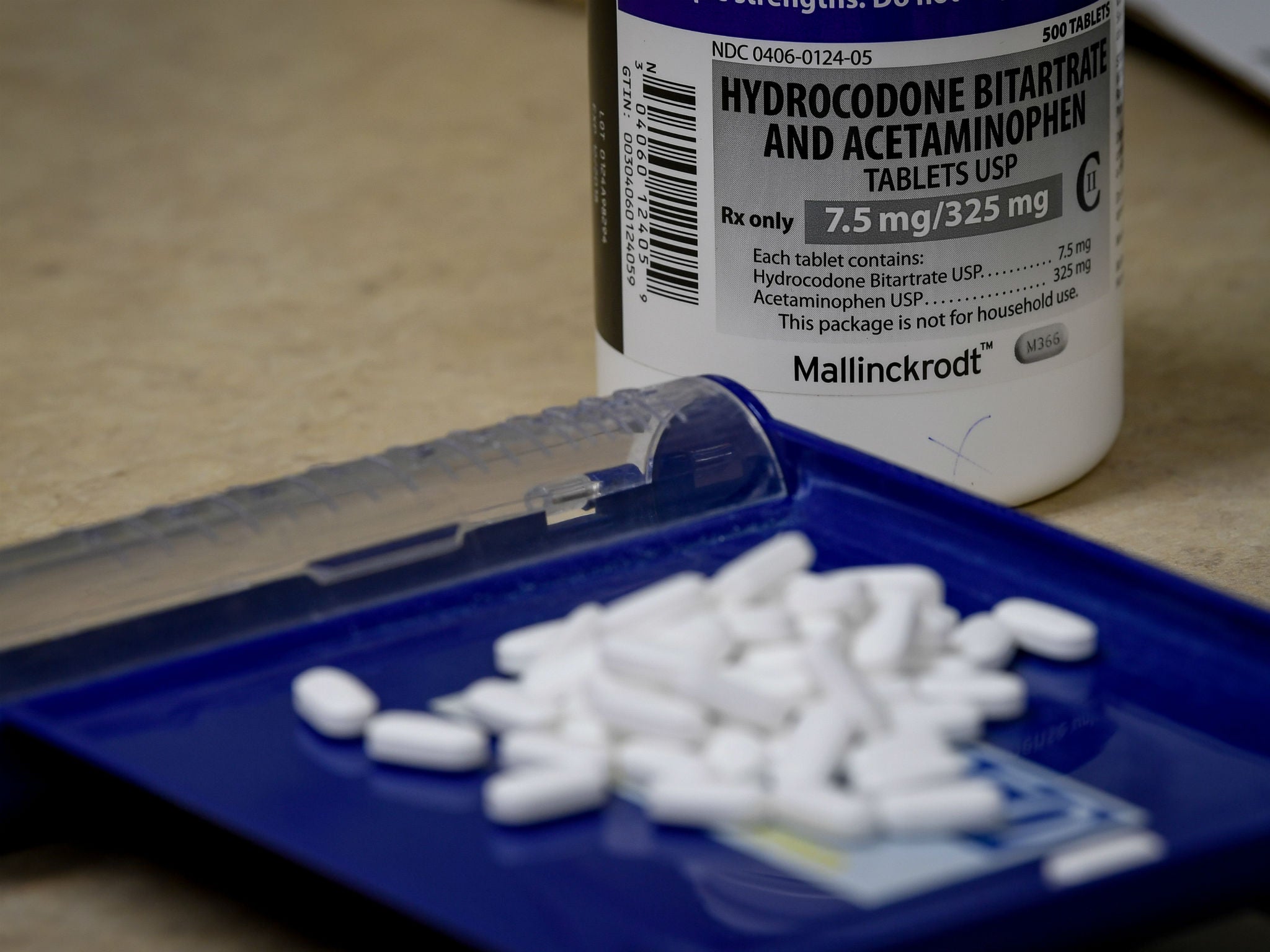Crackdown on prescription opioids followed by increase in ‘dark web’ purchases, study finds
Study suggests government crackdown on access to drugs did not suppress demand

Your support helps us to tell the story
From reproductive rights to climate change to Big Tech, The Independent is on the ground when the story is developing. Whether it's investigating the financials of Elon Musk's pro-Trump PAC or producing our latest documentary, 'The A Word', which shines a light on the American women fighting for reproductive rights, we know how important it is to parse out the facts from the messaging.
At such a critical moment in US history, we need reporters on the ground. Your donation allows us to keep sending journalists to speak to both sides of the story.
The Independent is trusted by Americans across the entire political spectrum. And unlike many other quality news outlets, we choose not to lock Americans out of our reporting and analysis with paywalls. We believe quality journalism should be available to everyone, paid for by those who can afford it.
Your support makes all the difference.Illicit online opioid purchases surged after the government cracked down on prescription painkillers, a new study has found.
With the United States grappling with a metastasising opioid addiction crisis, the US Drug Enforcement Agency (DEA) in 2014 tightened restrictions around drugs containing hydrocodone. The change made it more difficult to obtain and refill prescriptions for the widely user painkiller.
Many of the people who have become addicted to opioids in recent years have first developed a dependency on the drugs after being legally prescribed painkillers. Law enforcement officials were seeking to dam that outlet to addiction.
But in seeking to cut off access to opioids, the DEA instead pushed users into the online black market, a study published in medical journal the BMJ suggests.
In the years since the DEA cracked down, the share of opioids sourced through 31 different “cryptomarkets” - sales portals on the encrypted “dark web” that allow anonymous online transactions - doubled, the study’s authors found.
In an editorial accompanying the study, Scott Hadland of Boston Medical Center’s unit for pediatrics and addiction and Northeastern University associate professor Leo Beletsky warned that overdoses from illicit drug use were soaring as opioid prescription rates fell, suggesting that the addiction epidemic was increasingly being fed by “less expensive, more available, and highly potent illicit market alternatives” like heroin and fentanyl.
They warned that the study’s findings reflected the government’s misguided reliance on law enforcement, rather than on prevention and treatment programmes. Donald Trump's strategy for combatting opioid usage has included tougher penalties, with Mr Trump advocating sentencing drug dealers to death.
“Policies that suppress access to prescription opioids without reducing demand are known to fail”, Mr Hadland and Mr Beletsky wrote.
The day before the study’s release, a dark web drug trafficker who went by the moniker “OxyMonster” pleaded guilty in Florida to conspiring to distribute drugs and commit money laundering. The Department of Justice touted the outcome in a press release describing a sweeping collaboration between different law enforcement agencies.
But Mr Hadland and Mr Beletsky cautioned that devoting resources to criminal investigations of dark web drug markets would to little to address the underlying causes.
“When large cryptomarkets are shut down, the number of online sellers drops temporarily but then rapidly recovers and marketplaces fragment”, they wrote. “Attempts to disrupt darknet sales are therefore likely to cause an endless game of ‘whack-a-mole’ in which new cryptomarkets surface to replace old ones, and sellers and buyers simply migrate from one site to another”.
Join our commenting forum
Join thought-provoking conversations, follow other Independent readers and see their replies
Comments